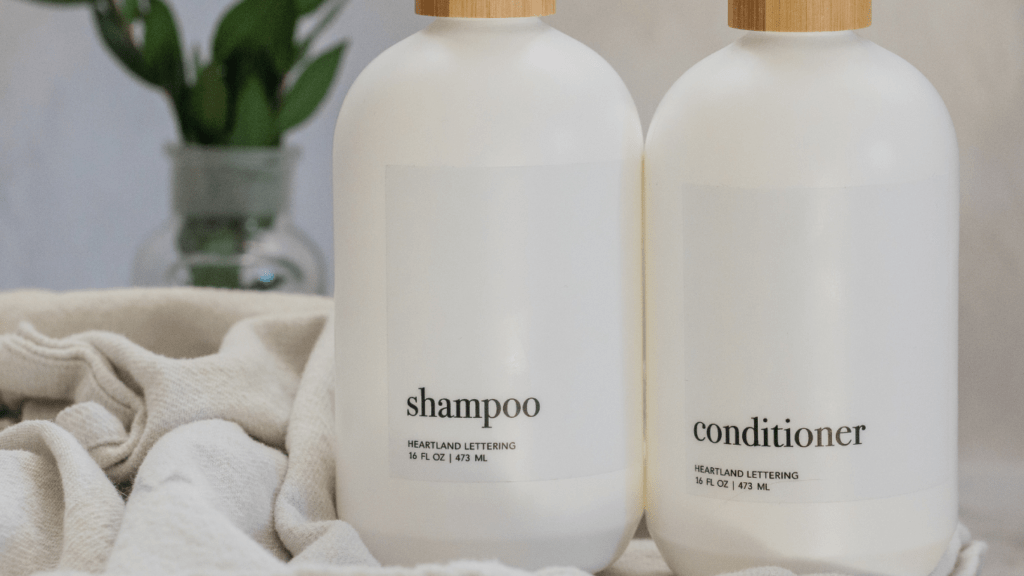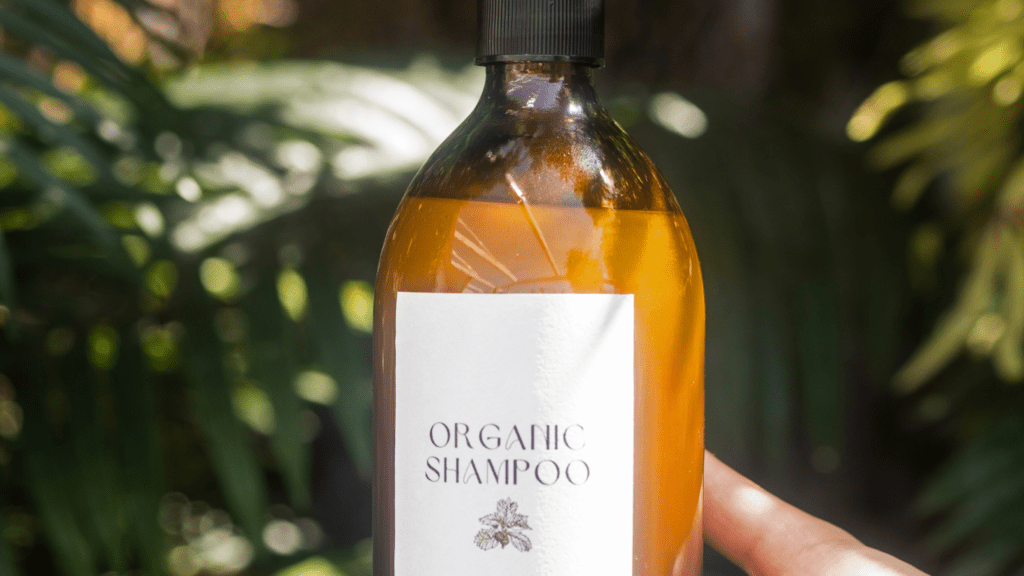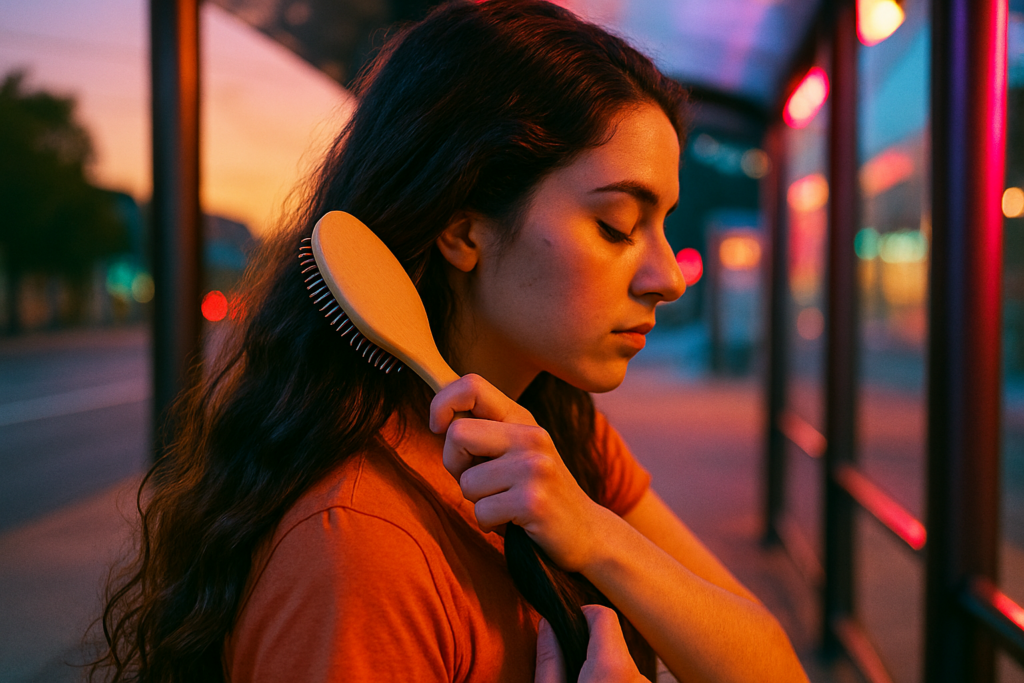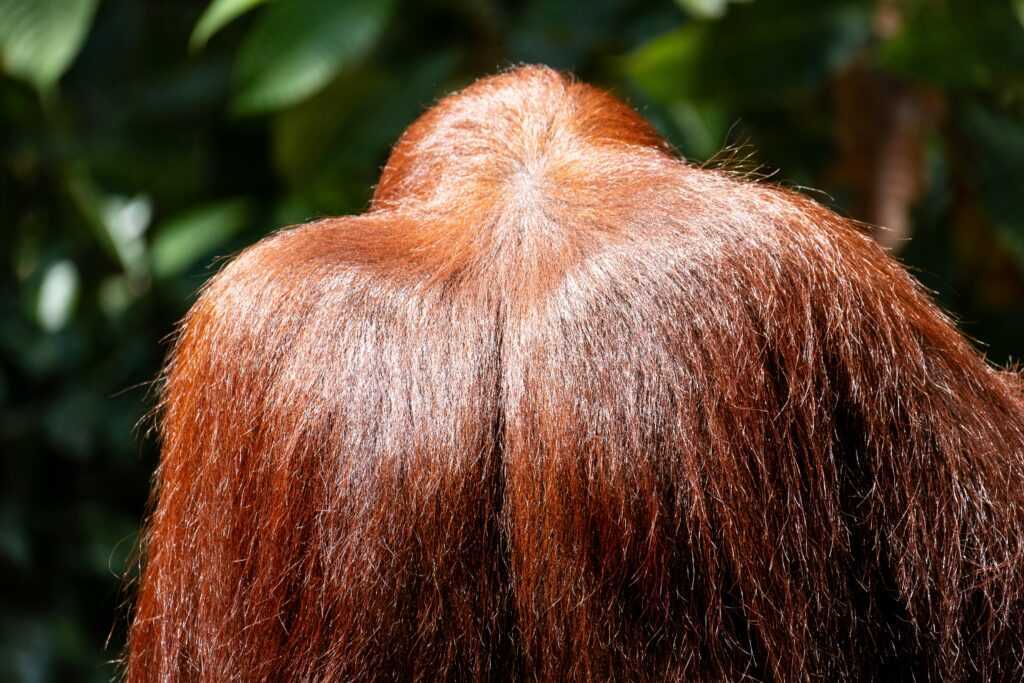Understanding Your Hair Type
Identifying your hair type is crucial for selecting the right hair products. Hair types generally fall into four categories: straight, wavy, curly, and coily.
Straight Hair
Straight hair lies flat from the roots to the tips, reflecting light for a naturally shiny appearance. This hair type often experiences oil buildup because natural oils travel quickly from the scalp down the hair shaft. To manage, opt for lightweight products like volumizing shampoos or conditioners. Avoid heavy creams and oils to prevent excessive greasiness.
Wavy Hair
Wavy hair forms a gentle S shape and tends to have more texture than straight hair. This type benefits from products that enhance its natural wave pattern without weighing it down. Look for lightweight mousses or gels designed for wave definition. Hydration is essential, so use leave-in conditioners sparingly to avoid overloading.
Curly Hair
Curly hair has defined curls or ringlets, which create natural volume but can also be prone to frizz. Products containing moisturizing ingredients are ideal for this hair type. Use sulfate-free shampoos to prevent dryness and follow with rich, hydrating conditioners. Curl creams and gels can help maintain shape and reduce frizz.
Coily Hair
Coily hair, characterized by tight curls or zigzag patterns, is often the most fragile and dry. This type requires deep moisture. Use creamy, hydrating shampoos and conditioners formulated for coily textures. Incorporate leave-in conditioners, oils, and butters to lock in the moisture and strengthen the hair. Avoid sulfates and silicones, which can strip natural oils.
Essential Hair Products
Choosing the right hair products is crucial for maintaining hair health and enhancing its natural beauty. Below are essential products categorized to fit different hair types.
Shampoos
Using the correct shampoo sets the foundation for healthy hair. Straight hair needs a lightweight, volumizing shampoo to prevent oil buildup. For wavy hair, a shampoo that hydrates without weighing it down enhances the natural wave pattern. Curly hair benefits from moisturizing shampoos designed to combat frizz and define curls. Coily hair requires sulfate-free shampoos with rich, hydrating ingredients to avoid dryness and maintain strength.
Conditioners
Conditioners play a vital role in keeping hair manageable and conditioned. Straight hair benefits from a lightweight, oil-free conditioner to avoid greasiness.
Wavy hair thrives with a hydrating conditioner that doesn’t weigh it down, maintaining its bounce. Curly hair needs a deep moisturizing conditioner to detangle and reduce frizz. Coily hair requires a heavy, rich conditioner to penetrate and soften the dense texture, providing lasting moisture.
Hair Masks
Hair masks offer intensive care for deeper nourishment. Straight hair benefits from a lightweight, volumizing mask used sparingly to avoid heaviness. Wavy hair needs a hydrating mask to enhance the natural wave texture and prevent dryness.
Curly hair thrives with a defining mask rich in natural oils and proteins to maintain curl definition and reduce frizz. Coily hair requires a deeply hydrating, protein-rich mask free of sulfates and silicones to strengthen and moisturize.
Choosing Products Based on Hair Needs

Selecting products tailored to individual hair needs ensures effective hair care and optimum results. Different hair concerns demand specific ingredients and formulations.
For Dry Hair
Dry hair benefits from products rich in moisturizing and hydrating ingredients. Look for shampoos and conditioners with argan oil, shea butter, and aloe vera. These ingredients lock in moisture and provide intense hydration. Leave-in conditioners and hair masks with keratin and amino acids strengthen and smoothen dry strands. Avoid sulfates and alcohol, as they strip essential oils.
For Oily Hair
Oily hair requires products that effectively control sebum production. Use shampoos with tea tree oil, salicylic acid, and apple cider vinegar to cleanse the scalp without over-drying it. Lightweight, volumizing conditioners work best, as heavy formulations can weigh down the hair. Dry shampoos with starch effectively absorb excess oil between washes, helping maintain a fresh look.
For Damaged Hair
Damaged hair thrives on products that repair and fortify. Choose shampoos and conditioners infused with proteins like keratin and biotin. These elements restore strength and elasticity.
Deep conditioning treatments with ingredients like:
- argan oil
- coconut oil
- silk proteins
provide vital nourishment. Avoid products with sulfates, parabens, and silicones, as they can further weaken the hair.
Each subheading addresses specific hair concerns, making it easier to choose appropriate products according to individual hair needs.
Ingredients to Look For
Choosing hair products with the right ingredients can greatly improve your hair’s health and appearance.
Natural Ingredients
Natural ingredients offer various benefits for different hair types. Argan oil helps moisturize and add shine to hair, especially beneficial for dry or damaged hair. Shea butter provides deep hydration, making it ideal for coily or very dry hair.
Aloe vera promotes scalp health and soothes irritation, suitable for all hair types. Jojoba oil closely mimics the scalp’s natural oils and can balance oil production, useful for oily and combination hair. Coconut oil penetrates deeply, strengthening and conditioning strands, effective for dry and wavy hair.
Avoiding Harmful Chemicals
- Avoiding harmful chemicals ensures your hair stays healthy and strong.
- Sulfates strip the natural oils from hair and can cause dryness and irritation.
- Parabens act as preservatives but have been linked to hormonal imbalances.
- Silicones create a temporary smooth coating but can lead to product buildup and dullness.
- Phthalates commonly found in fragrances can disrupt endocrine function. Formaldehyde, a preservative, causes scalp irritation and hair loss over time.
- Seek products labeled “sulfate-free,” “paraben-free,” and “silicone-free” for safer options.
Tips for Maintaining Healthy Hair
Healthy hair requires consistent care and attention. Here are essential tips to maintain your hair’s health and luster.
Regular Trims
Regular trims prevent split ends and promote healthier hair growth. I suggest trimming every 6-8 weeks, even if only a small length is removed. This practice reduces breakage and helps maintain a neat appearance.
Heat Protection
When using heat styling tools, always apply a heat protectant. Heat protectants create a barrier, reducing damage from tools like blow dryers, flat irons, and curling wands. Look for products containing ingredients like silicones (e.g., cyclomethicone) or polymers (e.g., PVP/DMAPA acrylates copolymer) for effective protection.
Proper Washing Techniques
Proper washing techniques include using lukewarm water and focusing shampoo on the scalp. Avoid hot water, which strips natural oils and can cause dryness.
Massage shampoo gently into the scalp to remove buildup and stimulate circulation. For conditioner, apply mid-length to ends where moisture is most needed. Rinse thoroughly to prevent product residue, which can lead to dullness and buildup.



 Men’s Hair Care Specialist & Author
Araceline is a unique and valuable contributor, bringing her expert knowledge of men’s hair care and grooming trends. As an experienced author, she shares her deep understanding of hair painting, coloring techniques, and the specific needs of men’s hair. Araceline’s articles are both informative and engaging, offering men practical advice on maintaining stylish, healthy hair.
Men’s Hair Care Specialist & Author
Araceline is a unique and valuable contributor, bringing her expert knowledge of men’s hair care and grooming trends. As an experienced author, she shares her deep understanding of hair painting, coloring techniques, and the specific needs of men’s hair. Araceline’s articles are both informative and engaging, offering men practical advice on maintaining stylish, healthy hair.
